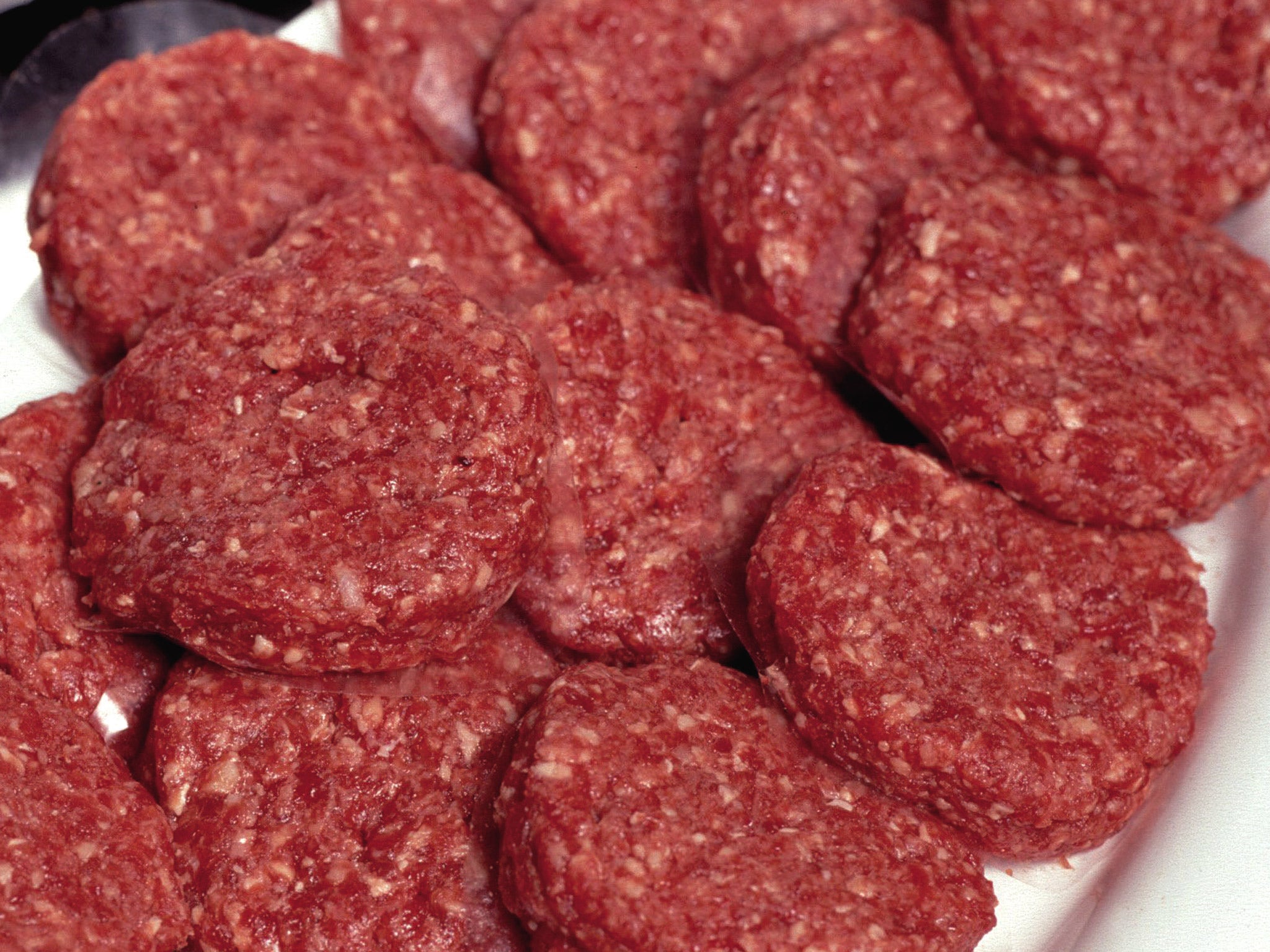Meat from horses slaughtered in Britain for human consumption contained traces of carcinogenic drug
Phenylbutazone or ‘bute’ – which can cause cancer in humans - was detected by FSA testing in five cases at British abattoirs last year, the FSA admitted

Safety tests on horse meat in Britain have revealed the presence of a banned veterinary drug which causes cancer in humans, the Food Standards Agency (FSA) admitted today.
Phenylbutazone or ‘bute’ – which is legally used to treat sore joints in horses but outlawed from entering the human food chain - was detected by the FSA in five cases at UK abattoirs last year.
The FSA said that the contaminated meat had not been eaten in Britain.
However it admitted that the illegal batches had evaded the controls in place and been sent abroad for human consumption.
In an interview with the Independent last week, a leading food scientist, Dr Duncan Campbell, said that Government ministers were wrong to state with certainty that beefburgers containing horse meat were safe to eat.
He pointed out that the horse meat in them could have come from animals that were diseased or treated with veterinary drugs harmful to humans.
The discovery earlier this month that beefburgers in Ireland and Britain were contaminated with unlabelled horse DNA from unknown sources has raised concerns about the integrity of the meat supply system.
After apparently receiving a leak from official sources, the Shadow Environment Secretary, Mary Creagh, raised the issue of ‘bute’ in the Commons this morning, telling MPs it had been found in British horse meat.
"I am in receipt of evidence showing that several horses slaughtered in UK abattoirs last year tested positive for phenylbutazone, or bute, a drug which causes cancer in humans and is banned from the human food chain,” she said.
"It is possible that those animals entered the human food chain."
The Government did not confirm the detection of the drug, but the Defra minister David Heath said: "Where positive results for phenylbutazone are found, the FSA investigates and takes follow-up action to trace the meat."
Three hours later, the FSA issued a statement confirming that phenylbutazone had been found in horse meat in UK slaughterhouses last year.
The FSA said: “In 2012, the FSA identified five cases where horses returned non-compliant results.
“None of the meat had been placed for sale on the UK market. Where the meat had been exported to other countries, the relevant food safety authorities were informed.”
Although horse meat is ordinarily safe, little is eaten in the UK for cultural reasons. However meat from horses slaughtered here is exported to the Continent, where there is a tradition of eating it in France, Belgium, France and many other countries.
The FSA stressed that the Food Safety Authority of Ireland had found no trace of phenylbutazone in the beefburgers contaminated with horse DNA.
Chris Elliott, Director of the Institute for Global Food Security at Queen's University Belfast, said that the risk to the consumer from drug residues was “low”.
He added: “However, the use of veterinary medicines in all animal species that do go into the food chain is a matter of food safety and has to be treated seriously.”
The FSA and FSAI are still investigating the source of the beefburger contamination.
Ten of 27 burgers tested – equating to contamination of 37 per cent - tested positive for horse DNA and 85 per cent positive for pig DNA.
News of the problem led to British and Irish supermarket chains, including Tesco, Iceland, Aldi and Lidl, clearing 10 million burgers from the shelves.
Bute
Phenylbutazone is often used in horses to treat sore joints and aid recovery after fractures.
However research has shown that when humans or animals are exposed to high levels there are adverse side effects such as bone marrow toxicity.
Therefore the drugs is not licensed for use in animals that go into the food chain.
Professor Chris Elliott, director of the Institute for Global Food Security at Queen's University Belfast, said. “There is a system in place in Europe which should identify when horses have been treated with the drug to prevent them going for food production but the effectiveness of this has been doubted by many.”
Join our commenting forum
Join thought-provoking conversations, follow other Independent readers and see their replies
Comments